Robin Pogrebin - The education of Brett Kavanaugh
Here you can read online Robin Pogrebin - The education of Brett Kavanaugh full text of the book (entire story) in english for free. Download pdf and epub, get meaning, cover and reviews about this ebook. year: 2019, publisher: Penguin Publishing Group, genre: Detective and thriller. Description of the work, (preface) as well as reviews are available. Best literature library LitArk.com created for fans of good reading and offers a wide selection of genres:
Romance novel
Science fiction
Adventure
Detective
Science
History
Home and family
Prose
Art
Politics
Computer
Non-fiction
Religion
Business
Children
Humor
Choose a favorite category and find really read worthwhile books. Enjoy immersion in the world of imagination, feel the emotions of the characters or learn something new for yourself, make an fascinating discovery.
- Book:The education of Brett Kavanaugh
- Author:
- Publisher:Penguin Publishing Group
- Genre:
- Year:2019
- Rating:5 / 5
- Favourites:Add to favourites
- Your mark:
- 100
- 1
- 2
- 3
- 4
- 5
The education of Brett Kavanaugh: summary, description and annotation
We offer to read an annotation, description, summary or preface (depends on what the author of the book "The education of Brett Kavanaugh" wrote himself). If you haven't found the necessary information about the book — write in the comments, we will try to find it.
The education of Brett Kavanaugh — read online for free the complete book (whole text) full work
Below is the text of the book, divided by pages. System saving the place of the last page read, allows you to conveniently read the book "The education of Brett Kavanaugh" online for free, without having to search again every time where you left off. Put a bookmark, and you can go to the page where you finished reading at any time.
Font size:
Interval:
Bookmark:
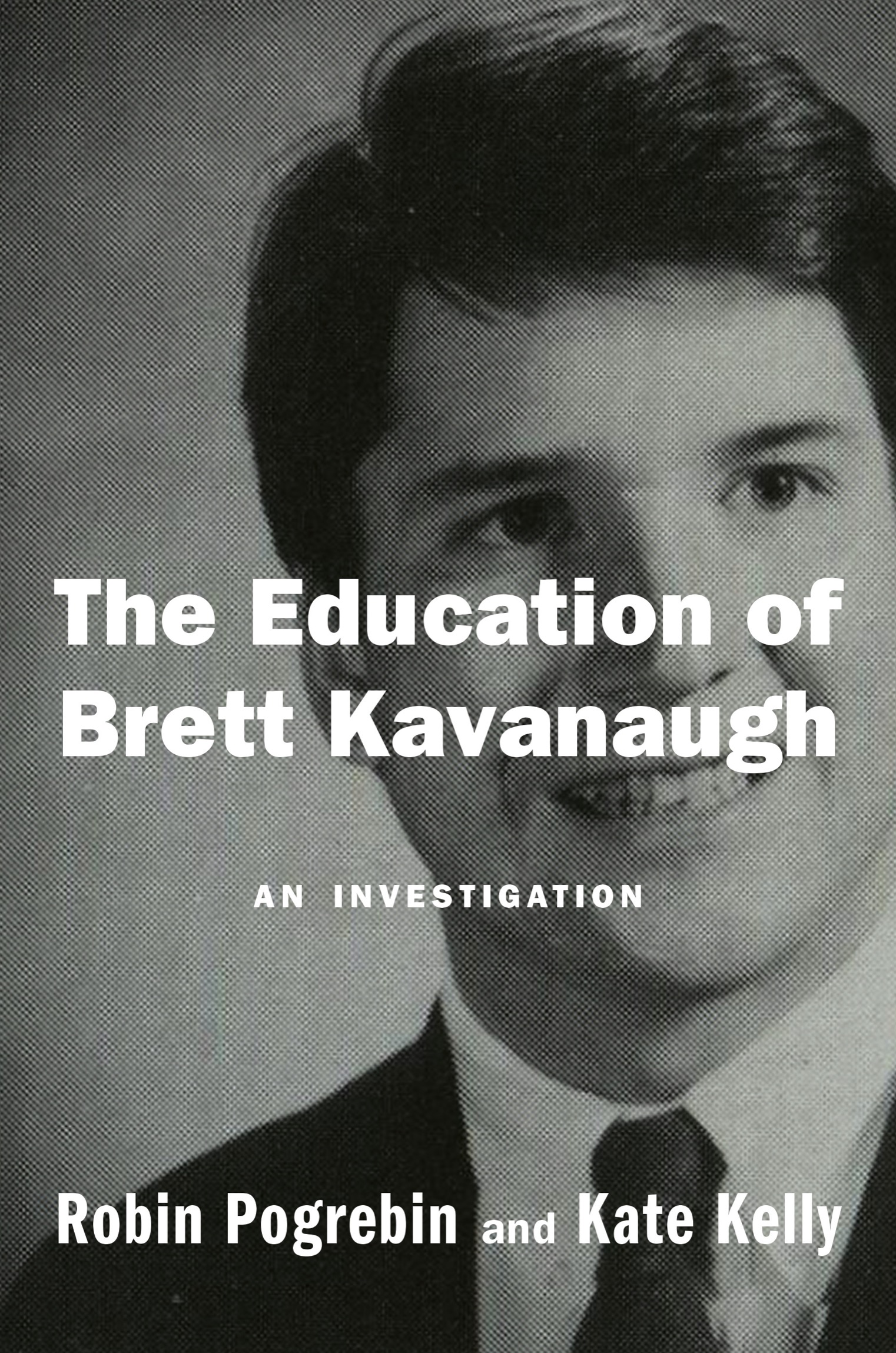
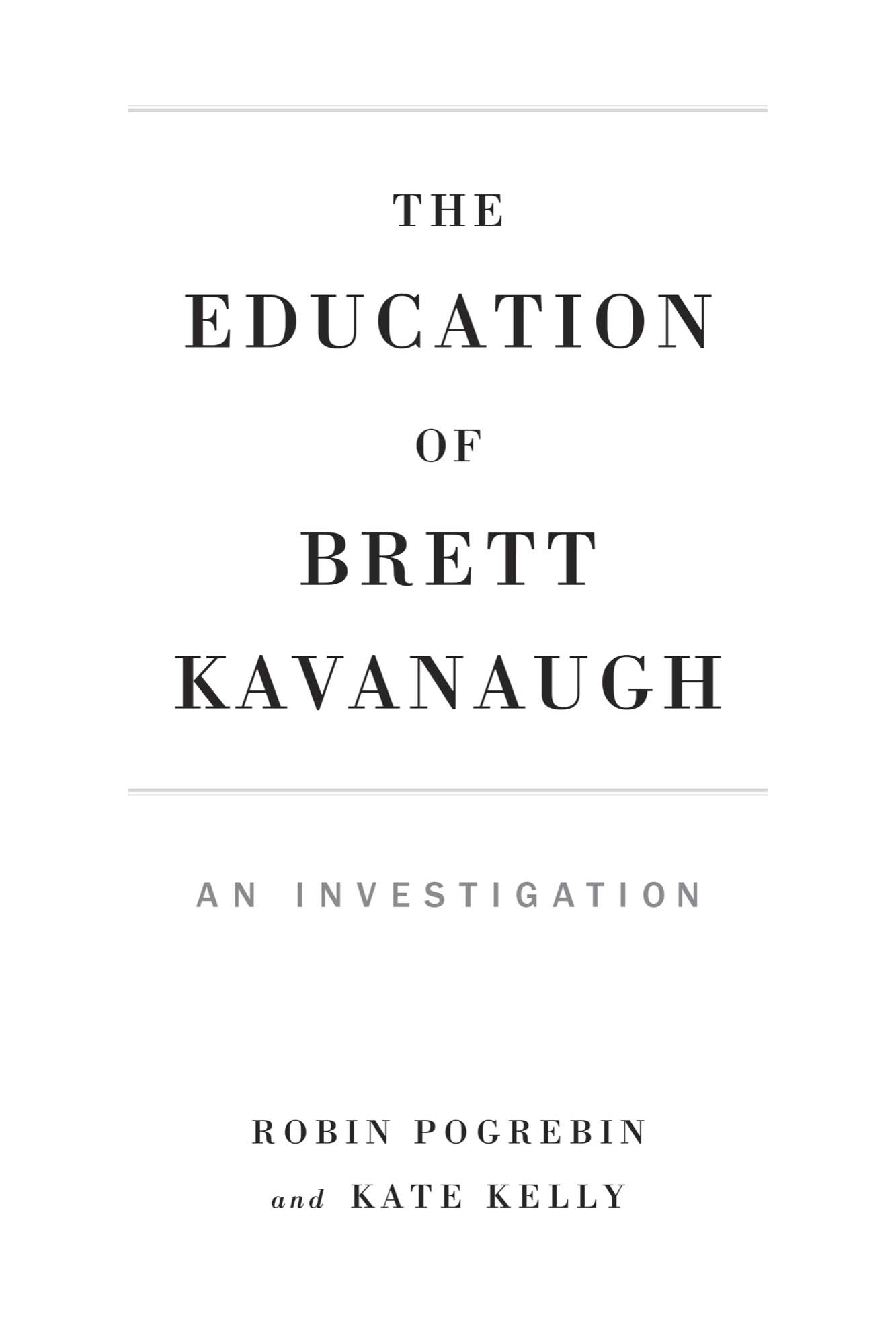
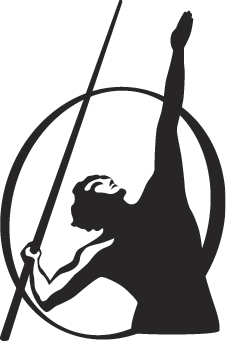
PORTFOLIO / PENGUIN
An imprint of Penguin Random House LLC
penguinrandomhouse.com

Copyright 2019 by Robin Pogrebin and Kate Kelly
Penguin supports copyright. Copyright fuels creativity, encourages diverse voices, promotes free speech, and creates a vibrant culture. Thank you for buying an authorized edition of this book and for complying with copyright laws by not reproducing, scanning, or distributing any part of it in any form without permission. You are supporting writers and allowing Penguin to continue to publish books for every reader.
Library of Congress Cataloging-in-Publication Data
Names: Pogrebin, Robin, author. | Kelly, Kate, 1975, author.
Title: The education of Brett Kavanaugh / Robin Pogrebin, Kate Kelly.
Description: New York : Portfolio/Penguin, 2019. | Includes bibliographical references.
Identifiers: LCCN 2019027621 (print) | LCCN 2019027622 (ebook) | ISBN 9780593084397 (hardcover) | ISBN 9780593084403 (ebook)
Subjects: LCSH: Kavanaugh, Brett Michael, 1965 | United States. Supreme CourtOfficials and employeesBiography. | JudgesUnited StatesBiography.
Classification: LCC KF8745.K38 P64 2019 (print) | LCC KF8745.K38 (ebook) | DDC 347.73/263 [B]dc23
LC record available at https://lccn.loc.gov/2019027621
LC ebook record available at https://lccn.loc.gov/2019027622
While the authors have made every effort to provide accurate telephone numbers, internet addresses, and other contact information at the time of publication, neither the publisher nor the authors assume any responsibility for errors or for changes that occur after publication. Further, the publisher does not have any control over and does not assume any responsibility for author or third-party websites or their content.
Cover design: Christopher Sergio
Version_1
To our families
On September 28, 2018, after a wrenching Senate hearing in which a California professor accused the Supreme Court nominee Judge Brett M. Kavanaugh of sexually assaulting her as a teenager, the Federal Bureau of Investigation opened an inquiry into the matter. Ten people were interviewed. Kavanaugh and his accuser, Christine Blasey Ford, were not among them.
Six days later, members of the Senate Judiciary Committee gathered in a secure facility to review the FBIs report on the allegations. It was inconclusive. Armed with two deeply conflicting accounts and little else but contextual details, the committee voted to confirm Kavanaugh to the high court on October 6. Later that day, he took the oath of office.
During that same period, dozens of people from Kavanaughs past clamored to be heard. The FBI, Senate offices, and newsrooms had been overwhelmed with messages from friends, former classmates, and acquaintances of the judge, offering a range of perspectives on his life and work. Some had known Kavanaugh as a youth. Others knew him at different points in his career. The vast majority were never able to reach the FBI to have their input considered.
With so many loose ends dangling, much of the country had a sense of unfinished businessand so did we. Thanks to unexpected news tips and our shared backgrounds with the judge, we had been pulled off our regular beats at The New York TimesRobin culture and Kate businessto join the team covering Kavanaughs confirmation. Robin was in Kavanaughs class at Yale, just a few doors away from him in the freshman dorm. Like Kavanaugh, Kate grew up in the Washington, D.C., area and attended a girls high school in the network of his high school, Georgetown Prep.
After Kavanaugh was confirmed, we put away our notebooks and moved on to other stories. But we continued to think about the leads that had come to light during the confirmation process and the questions that remained unanswered.
Did Brett Kavanaugh assault one or several women during his youth? Should he be on the Supreme Court, where he is poised to be a swing vote on matters of security, social justice, and personal freedom? How do we dispassionately examine these questions when the allegations are so emotionally resonant for so many people? And what did we learn about Justice Kavanaugh, our country, and ourselves from the polarizing confirmation process?
We set out to complete the investigation. Over a ten-month period, we read thousands of pages of media accounts and public documents; studied high school and college writings from the 1980s; watched video of Kavanaughs past speeches and testimony; and conducted hundreds of interviews.
In the course of our efforts, we spoke to Ford, Deborah Ramirez, Leland Keyser, and, briefly, to Mark Judge. Kavanaugh himself declined to be interviewed.
We are grateful to the scores of other people who informed our work, many of whom are on the record and are referenced in the text. Because of the heated nature of the Kavanaugh confirmation debate and the harassment and death threats endured by Kavanaugh, Ford, and others involved, many of our sources declined to be identified by name. Their recollections are embedded in this book but not cited individually.
Some of our published sources are referred to directly in the text of the book. In places where sources are not noted in the main body of the text, or where further reading could be informative, we have referenced our sources in the notes. Information that is not explicitly noted in either place comes from source interviews or documents that are not publicly available and have been reviewed by the authors with the understanding that the source would not be named.
For Kavanaughand for our countrythe confirmation was an education in the political partisanship and cultural sensitivities of the current moment two years after a polarizing presidential election and one year into the galvanizing #MeToo movement. It was also a cautionary tale of how past behavior can impact future prospectsa heightened reality in the age of social media, when so much is now recorded.
We realize that our readers will evaluate the results of our investigation through their own perspectives. In the course of our reporting, we saw how easy it was for observers to project onto the confirmation process whatever they wanted to believe. Even without a fuller sense of the facts, many had already made up their minds.
It is hardmaybe impossibleto set aside personal history or political orientation when considering the questions about Kavanaugh. If Kavanaugh mistreated Ford and Ramirez but has conducted himself honorably in the past thirty-six years, does he deserve to be on the court? If there is not dispositive proof that Kavanaugh engaged in such misbehavior, were the accusations enough to eliminate him from consideration? Was his temperament during the last day of testimony in itself disqualifying?
We leave those conclusions to our readers. No doubt they will be debated for many years to come.
BRETT M. KAVANAUGH , judge on the U.S. Circuit Court of Appeals
ASHLEY ESTES KAVANAUGH , his wife
MARTHA KAVANAUGH , his mother
EDWARD KAVANAUGH , his father
Font size:
Interval:
Bookmark:
Similar books «The education of Brett Kavanaugh»
Look at similar books to The education of Brett Kavanaugh. We have selected literature similar in name and meaning in the hope of providing readers with more options to find new, interesting, not yet read works.
Discussion, reviews of the book The education of Brett Kavanaugh and just readers' own opinions. Leave your comments, write what you think about the work, its meaning or the main characters. Specify what exactly you liked and what you didn't like, and why you think so.

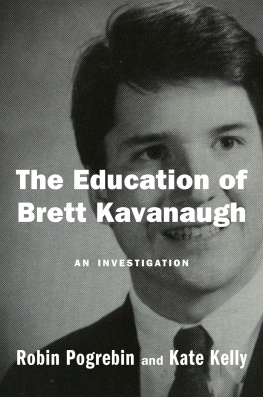
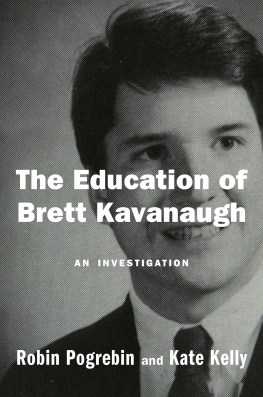

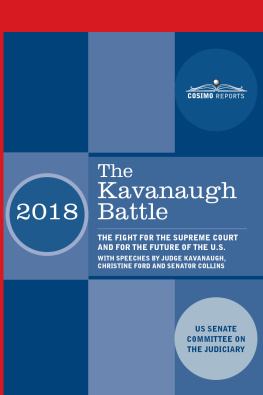
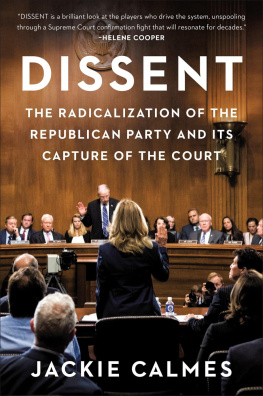
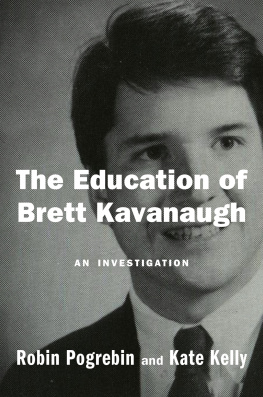
![Simon Brett [Simon Brett] - Mrs. Pargeter’s Point of Honour](/uploads/posts/book/142155/thumbs/simon-brett-simon-brett-mrs-pargeter-s-point.jpg)
![Simon Brett [Simon Brett] - Mrs. Pargeter’s Package](/uploads/posts/book/142153/thumbs/simon-brett-simon-brett-mrs-pargeter-s.jpg)